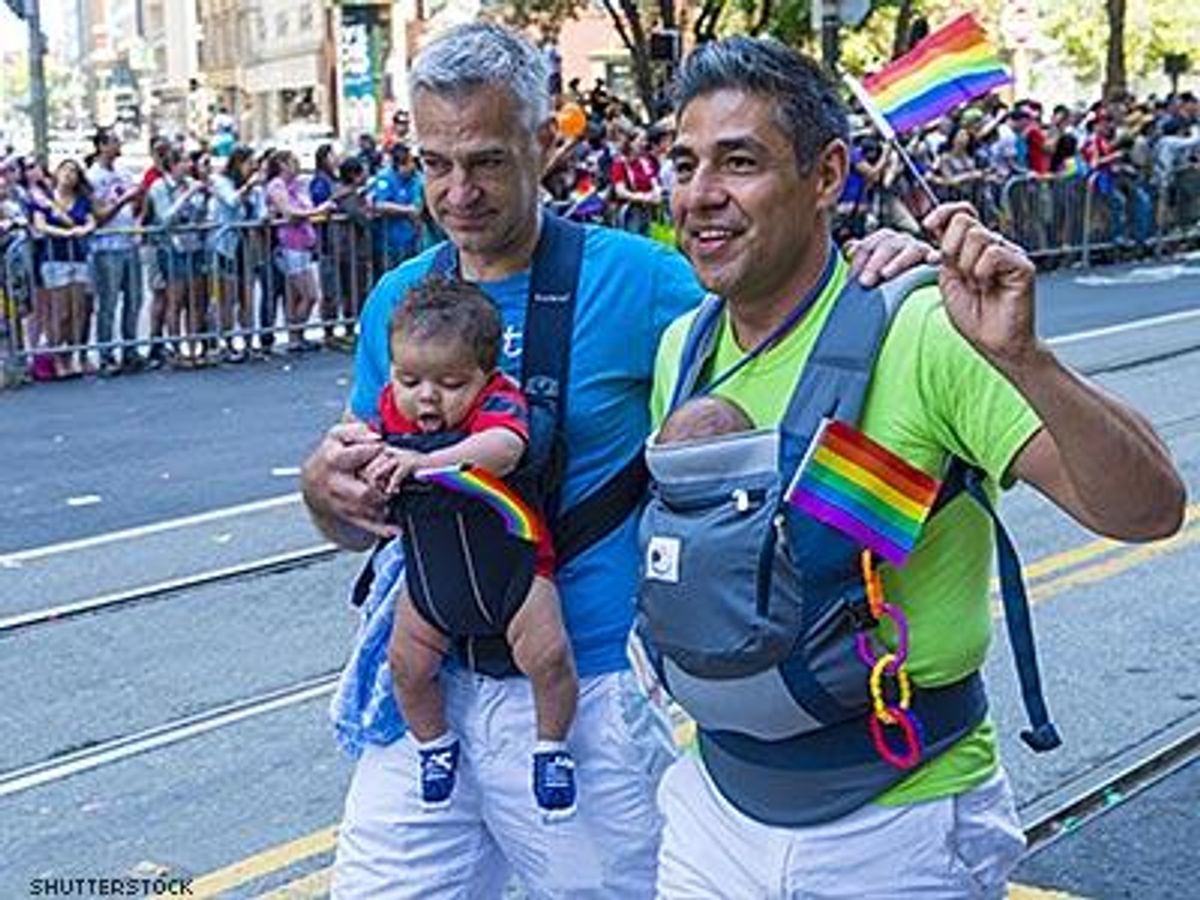The U.S. Supreme Court's recent marriage equality ruling has brought the freedom to marry to the entire country, recognizing the equal dignity of our families. However, there is a lot more we need to do to achieve true family equality that fully respects the rights of LGBT parents and their children.
Let me share the story of Marisol and her spouse, Elena (names have been changed to protect their family). They decided to have a child and asked one of Marisol's friends to be their sperm donor. The thousands of dollars that it would cost to use a clinic would be too costly for them, so they inseminated at home. Marisol and Elena's relationship began to break down not long after their daughter was born, and they separated when their child was a year old. In their divorce, the sperm donor came forward and asked to be treated as the child's father. Marisol, hurt and angry about the breakup, supported the donor's claim that Elena was not the mother.
Even though Elena was on their child's birth certificate, it took her over two years to finally be recognized as her daughter's parent. The National Center for Lesbian Rights was ultimately able to help Elena keep shared custody of her daughter. But, this outcome was far from certain for Elena and for other parents like her.
There are many states that still do not protect parents who conceive using a known sperm donor through at-home insemination without medical intervention, and not all states fully protect nonbiological parents. Being on your child's birth certificate helps show that you are a parent in everyday life, but if you end up in court, it does not necessarily mean you will be recognized as a parent. Many families are woefully unprotected by out-of-date and incomplete state laws. More work is needed in these states to ensure that LGBT families enjoy full legal protections.
For instance, some LGBT parents are still at risk of losing their children because many states do not have adequate protections for nonbiological parents. This can be true even for married parents, especially if they married after their children were born. Unmarried parents and their children have very few protections in many states, and many children are at risk of losing one of their parents.
Because many states do not fully protect LGBT parents and their children, NCLR still strongly recommend that every nonbiological parent get an adoption or a court judgment recognizing them as a parent. Unfortunately, this is still the only way to make sure that parents will be fully legally recognized in every state if they move or travel.
This lack of legal recognition impacts LGBT families in many ways. In addition to being vulnerable if the family breaks up, children in these families are at risk of losing both their parents and ending up in foster care if something happens to their birth parent and their other parent is not legally recognized. In another NCLR case, after the birth mother died, the grandmother tried to take custody away from the surviving nonbiological mother. We succeeded in keeping the family together, but the trauma that the surviving parent and the child experienced from being separated just after losing their beloved partner and mother could not be erased.
In another case, two men who were not able to marry raised two children conceived through surrogacy, but the state they live in does not allow an unmarried couple to use surrogacy and both be recognized as parents. Now that the parents have separated, it is unclear whether both of their parental rights will be protected. In another, a transgender father who is having a child conceived through assisted reproduction is worried about his parental rights if something happens to his wife in childbirth because their state does not have any protections for parents using assisted reproduction.
In order to raise awareness about the need to reform state laws so that they fully protect parents' rights to care for their children, NCLR launched the #Equality4Families campaign earlier this month. Since our start in 1977, we have worked tirelessly to ensure that every family in every state is fully protected by the law, launching projects and campaigns focused on parenting rights, transgender families, low-income families, and families of color.
It's imperative that we achieve #Equality4Families across the country. We have momentum on our side to finish this chapter of our work. We will be here fighting for our families until all families, married or not, regardless of how they came together, are fully respected by the law in every state.
Learn more about #Equality4Families here.
 CATHY SAKIMURA is deputy director and family law director at the National Center for Lesbian Rights.
CATHY SAKIMURA is deputy director and family law director at the National Center for Lesbian Rights.
































 CATHY SAKIMURA is deputy director and family law director at the National Center for Lesbian Rights.
CATHY SAKIMURA is deputy director and family law director at the National Center for Lesbian Rights.

















































Here's our dream all-queer cast for 'The White Lotus' season 4